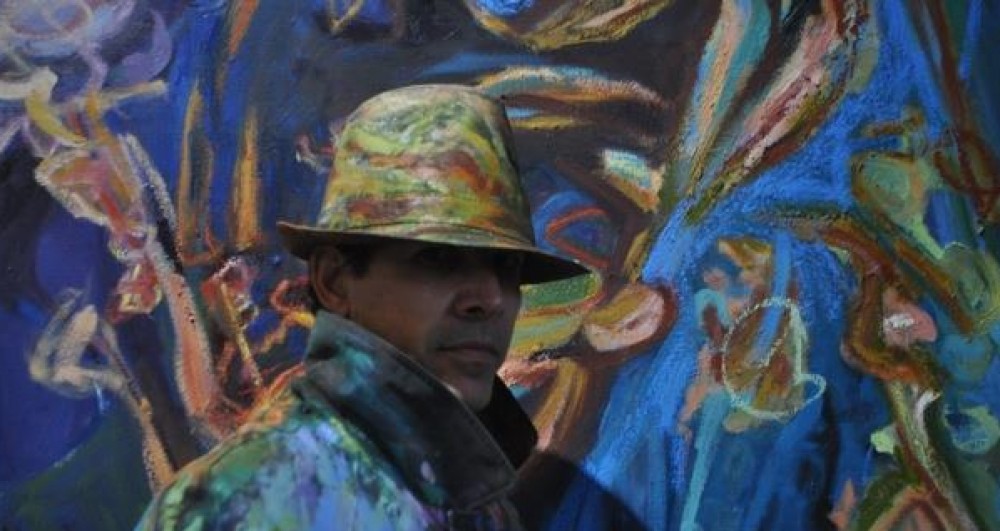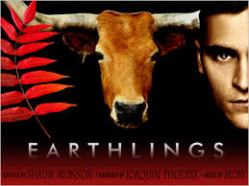WARNING: SPOILERS

I can still remember the first time I saw The Deer Hunter. I was living in NYC, studying at the American Academy of Dramatic Arts and going to see a lot of movies. One had to get tickets in advance . . . and they cost $5.00!! This was at a time when the cost for a movie ticket was about $2.50. I arrived on a rainy afternoon and settled into my seat at the Coronet Theater and after 3 hours I could barely move, so blown away was I by what was to become one of my favorite films of all time.
By now the story is well known. The lives of six buddies, bonded together while growing up and working in a small steel town in Pennsylvania are irrevocably blasted apart when three of the friends go off to fight in Vietnam. The first third of the film is steeped in ritual as the men work in the blast furnaces of the mill, drink at the local bar, and go deer hunting. The centerpiece of this section of the film is the marriage of Steven (John Savage) and Angela (Rutanya Alda). Angela is pregnant, but not by Steven. However, Steven loves Angela and to him that is all that matters. One of the great aspects of The Deer Hunter is that it never overtly pushes its themes in your face. For example, Stevie (sensitively portrayed by John Savage) reveals his situation with Angela in a quick aside with Nick right after the wedding, before carrying her away in the car. It’s a bit of a throwaway scene, but it also shows Stevie’s love for his now wife and his position as “knight in shining armor.” It is an attitude that reveals another layer of the belief system of these small town men.
The architectural landscape/locations are covered with soot and grit, from the trailer Mike and Nick live in, to the run down house in which Meryl Streep’s character Linda, escapes from her father’s physical abuse, to the pool hall. Everything is eroded and grimy except the Orthodox Church, which glistens with riches. After the wedding, there is a grand, blue collar reception in the local Knights of Columbus hall. The reception is a raucous, drunken, joyful event, but at one point a Green Beret walks in to have a drink. Mike, Nick, and Steven, who can’t wait to get to Vietnam where they hope to be sent to “where the bullets are flying” ask the soldier what it’s like over there. The soldier’s steady gaze and response of “Fuck it,” reveal his knowledge of the reality of this war and the other men’s ignorance of it. His stark response surprises the men a bit, but then they laugh, raise a glass in toast to the soldier with a mighty “Fuck it!” of their own. The soldier’s response is a cold stare. It’s a terrific, revealing scene – one that shows how “drunk” the ignorant men are with the thought of going to “protect America.” They don’t yet know the horrors of war. The Green Beret knows and his response of “Fuck it” is two-fold. It shows his feelings towards the war and also how futile it would be to try and tell these men the reality of it.
There is a break from the dark drudgery of the town and the mill as the men go hunting deer in the beautiful, snowcapped mountains. Vilmos Zsigmond’s cinematography creates a stark contrast between the hunting scenes and the rest of the film. This is the place where Mike goes to be cleansed, to participate in man’s longest running ritual – the hunt for food. But he has a strict code about the ritual of hunting, one which will help him survive in the wilds of Vietnam. He has told Nick that the deer must be taken in one shot. That’s what it’s all about. Nick says he doesn’t think about that much anymore, a decision which will have dire consequences for him. Mike always comes home with a deer because of his strict adherence not only to his code about hunting, but his insistence on how he controls all aspects of his life. Rituals must be followed, so after a lifetime of hard work, hard drinking, church attendance, marriage and deer hunting, it is off to fight in a war to protect America.
Once the story shifts to Vietnam the audience is witness to what I believe is one of the most harrowing scenes in the history of cinema. Captured by the North Vietnamese, Michael, Steven and Nick must play a deadly game of Russian roulette and it is here that Michael’s survival skills will save them all. Mike tells Nicky they need to get more bullets in the gun. Nick responds, “More bullets? How many more?” and when Mike tells him three, his response is the same as ours, “Three bullets? Are you crazy!? “ Mike says, “We gotta do it, Nicky. It’s our only chance. You wanna stay down here and die?” Once done, he and Nick, facing each other, play the game until there are three EMPTY chambers in the gun before turning on their torturers.
Although the acting from everyone in this film is extraordinary, in this scene it is otherworldly. DeNiro and Walken are so in tune, so intense, it is impossible not to be glued to ones seat, waiting to breathe once it is finally, mercifully over. Cimino has set the scene so the audience wonders how the men can possibly escape. And the manner in which he builds the tension, aided by the performances of De Niro, Walken, the men playing their captors and the editing of Peter Zinner (who also edited The Godfather and The Godfather Part II) is simply astonishing. Cimino’s direction centers on performance, not style. He steps out of the spotlight and allows the actors the freedom to dig to the darkest places of their souls and that is what makes the film so powerful.
The three men escape, aided by Michael, but are eventually separated. After Nick’s stay at a local hospital he finds himself wandering, both physically and mentally. Eventually, he comes upon a hidden gambling den where men are playing Russian roulette for money. Dragged inside by a French provocateur, Nick’s mental state pulls him into this troubled, dark underworld. He watches the game and then intrudes, grabbing the gun, putting it to his head and pulling the trigger. It’s a blank. The place erupts and suddenly we see Mike in the crowd. In the ensuing mayhem, he loses track of Nick.
The three friends have become strangers in a strange world, their lifelong connections severed by a blistering war, one which they were raised to believe is part of the American dream, but has now become a nightmare.
The last third of the film revolves around Michael’s return home and his efforts to bring everyone back together again. He connects with Linda (a moving, nurturing performance by Streep), Nick’s love, and slowly they come together in their desperate need for comfort. Later, Mike tries to continue with his rituals and go deer hunting with his other buddies, the ones who stayed home. But he is a different man and finds them stupid and careless. Alone, stalks a deer, but eventually shoots over its head, allowing it to live. As he sits by a clear rushing water fall (a significant contrast to the muddy river in Vietnam) and yells “Okaaaaaaaaay?” into the frosty air, you can feel him come to terms with his old life of ignorance and a newly realized desire for peace.
Mike finds out that Stevie is living in a veteran’s hospital. When we first see him it is a shock. Stevie is in a motorized wheelchair. He has lost both legs and only has the use of his right arm. Mike gives him a hug and only for a moment can we see the heartbreak in his face. This is a very short moment, but again reveals De Niro to be so in character, so truthful that his expression has many shades. He is devastated by what he sees, but in an instant smiles at Steve as if nothing is wrong. “We made it. We made it,” he says to Steve, which has a dark undercurrent considering that Michael was ready to leave Stevie behind while they were captured in Vietnam. Stevie then shows Mike a drawer full of money that’s being sent to him every month. Mike realizes it’s Nick, making money playing Russian roulette back in Vietnam. It is then that Mike returns to that burnt out land to bring him home.
Mike tracks Nick down, but when the two are face to face, Nick doesn’t recognize him. At a crucial moment in time we will see why, as a flash of his arm reveals heroin tracks. Nick is about to play Russian roulette in front of a raucous crowd so Mike forces his way into the game. Once again he is face to face with Nick, struggling for their survival. First, Mike puts an empty chamber in the gun. Then it is Nick’s turn, but Michael pulls his arm down and we see the heroin tracks. Trying to break through to Nick, Mike reminds him of how he loved the trees back when they used to go deer hunting and the idea of “one shot.” Nick seems to recognize this, smiles and says, “one shot,” pulls Mike’s hand away from his wrist holding the gun, puts it to his head and pulls the trigger. Nick’s luck has run out and as blood pours from his head, Mike screams, “Noooo, no, no, Nicky. Noooooo. Noooooooooo!“ It is a devastating moment in this already heartrending film.
At the time the film came out (and probably still today), the ending of The Deer Hunter is controversial. After Nick’s burial, the friends gather in the bar to have something to eat. John (the owner) is in the back room making eggs and bursts into tears. He then begins to hum “God Bless America” under his breath and as he brings the eggs into the room full of friends they all join in and sing this famous hymn. They raise their glasses of beer.
“To Nick.”
Freeze frame, roll credits.
After all the friends have been through they still believe in the land that bore them, that gave them work, friends, home and community. Many left- leaning viewers and critics did not like that these people were shown the horrors of war and did not wind up hating or feel at least very angered by the American beliefs and politics that sent them overseas to fight and then wreak havoc on their small town lives. But this ending is perfect. It remains true to the characters, instead of trying to provoke a message. And that is the great strength of The Deer Hunter. It is a character piece much more than a political piece. And although Jane Fonda and others at film festivals tried to make the film political, saying the portrayal of the Vietnamese people was racist, the picture is too strong to be denied its incredibly moving, human story.
. 












